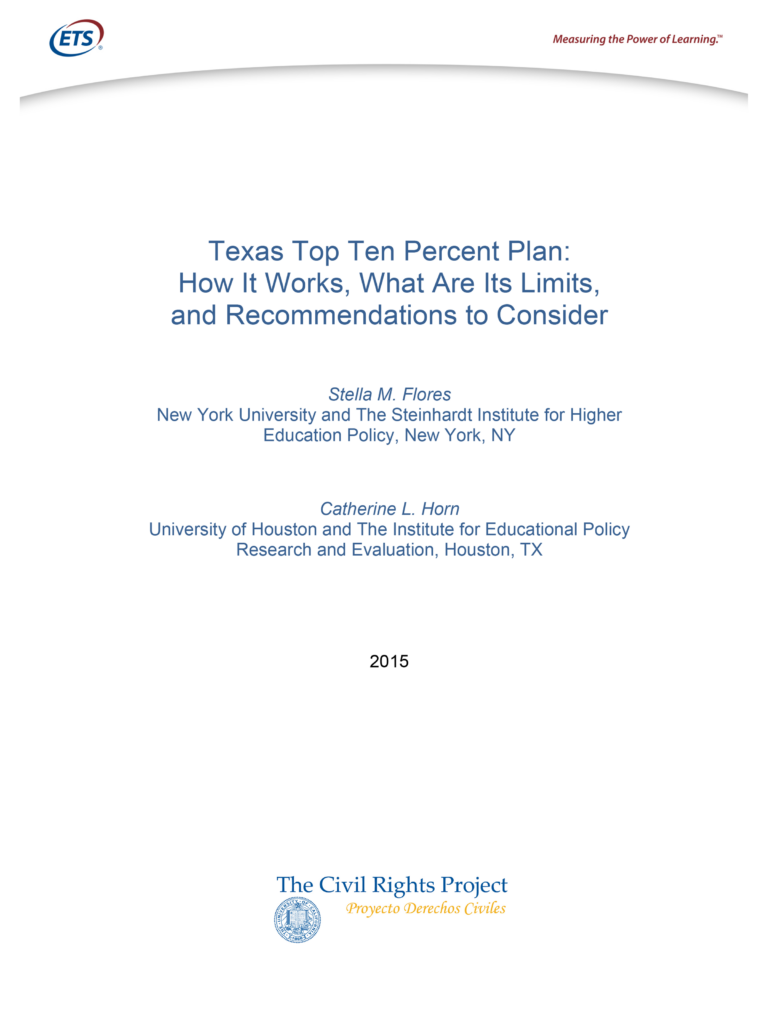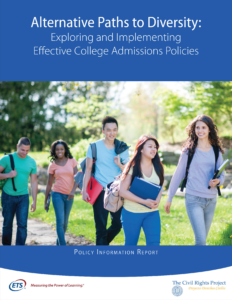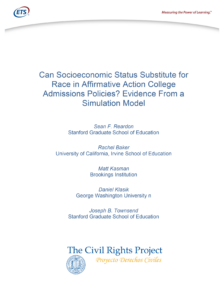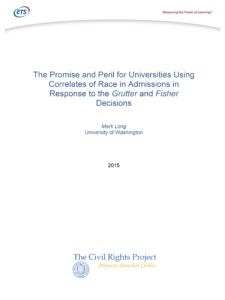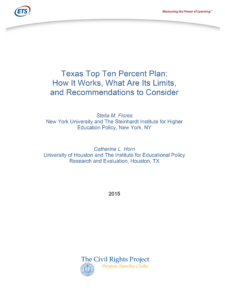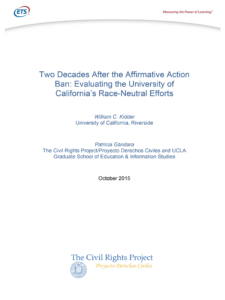Abstract
In this paper, we endeavor to contribute to efforts to implement college admissions strategies appropriate within the nation’s developing law by examining percent plans, an alternative race-neutral path to college admissions in Texas, California, and Florida. We seek to do four things: (a) summarize the broad contributions to students’ opportunities to access college; (b) describe the three state percent plans currently in place and the important role demography plays in their implementation; (c) synthesize what is known empirically about percent plans, their value, strengths, and limitations; and (d) provide empirically based considerations related for institutions considering the implementation of alternative admissions plans. As the higher education community contemplates percent plans as possible mediators of the equity crisis, this report finds that there is much to be learned from the rigorous research available on these plans to date, and much work left to be done to cultivate their success.
This brief and three others are the result of a collaboration between the Civil Rights Project and the Educational Testing Service, Strengthening Campus Diversity: How Do We Address This Important Issue? The four issue briefs discuss how college campuses can attempt to maintain and expand diversity within a legal framework.
The other three briefs are:
- “Two Decades After the Affirmative Action Ban: Evaluating the University of California’s Race-Neutral Efforts,” by William C. Kidder (UC Riverside) and Patricia Gándara (UCLA, CRP Co-director).
- “Can Socioeconomic Status Substitute for Race in Affirmative Action College Admissions Policies? Evidence From a Simulation Model,” by Sean F. Reardon (Stanford University), Rachel Baker (UC Riverside), Matt Kasman (Brookings Institution), Daniel Klasik (George Washington University), and Joseph B. Townsend (Stanford University).
- “The Promise and Peril for Universities Using Correlates of Race in Admissions in Response to the Grutter and Fisher Decisions,” by Mark Long (University of Washington).
In compliance with the UC Open Access Policy, this report has been made available on eScholarship:
